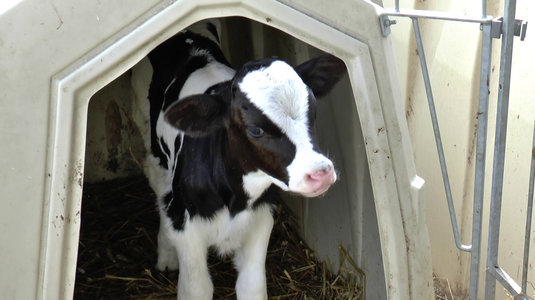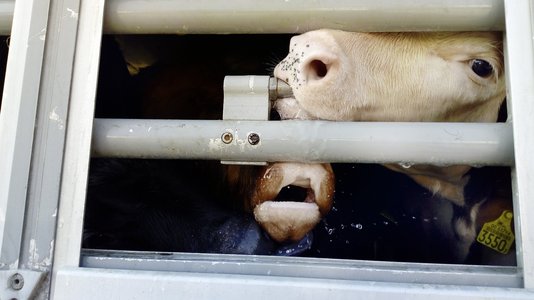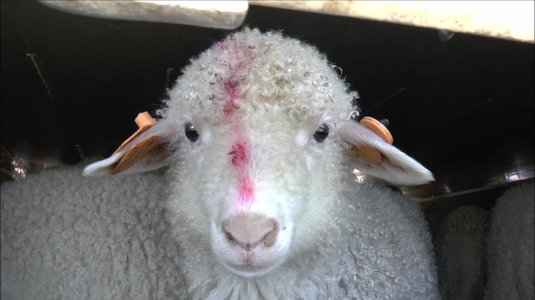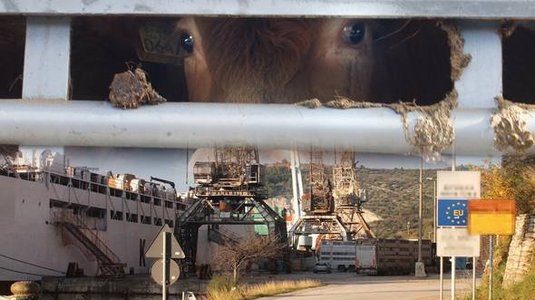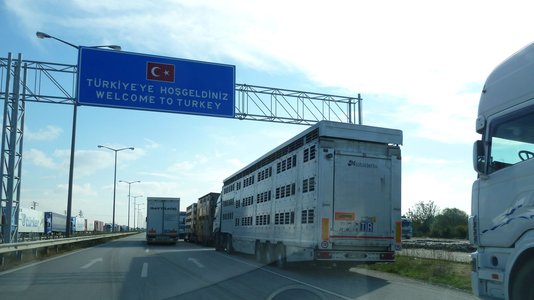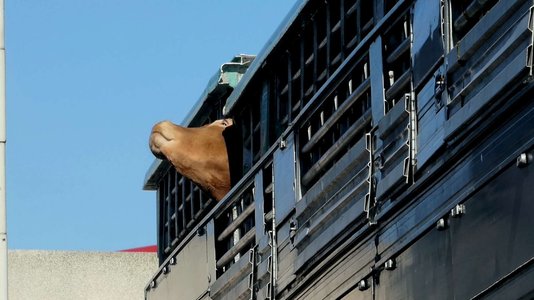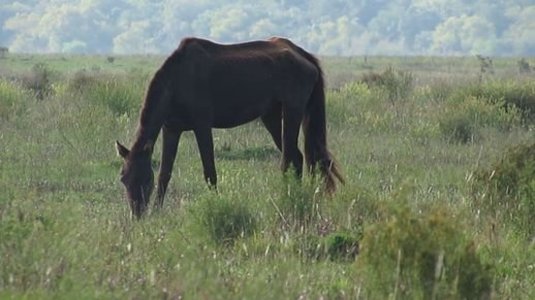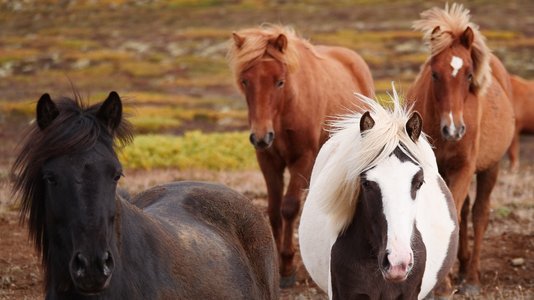Dossiers
Production of PMSG in Iceland
1. The hidden blood business
Before the publication of our documentary film “Iceland – Land of the 5,000 Blood Mares” in November 2021, few people in Iceland and abroad knew about the blood business. Every year, around 5,000 pregnant Icelandic mares are repeatedly exposed to high-volume blood collections for the production of Pregnant Mare Serum Gonadotropin (PMSG), also known as Equine Chorionic Gonadotropin (eCG).
Production of the fertility hormone PMSG is a “big business” in Iceland that has existed for around 40 years and has been growing considerably in the past decade. There is only one pharmaceutical company in Iceland trading in PMSG: Isteka ehf. The company mainly acquires the mares’ blood from independent farms. Blood is processed at Isteka’s laboratory into a pure PMSG powder and sold to pharmaceutical companies abroad. Fertility drugs serve for the induction and synchronisation of oestrus in farmed animals.
Most of the mares used for PMSG production in Iceland are semi-wild; they are bred for PMSG and meat production. The farmers receive income by selling the blood of the pregnant mares to Isteka and by selling the foals, for slaughter. Nowadays, the production of PMSG is far more lucrative than the production of horsemeat. According to informants, foals are just a cheap by-product of the blood business, and the price of slaughtering foals has dropped drastically in the past years. Many end up in pet food.
After repeated public scandals about PMSG production in Argentina and Uruguay, involving severe mistreatment of blood mares, several pharmaceutical companies stopped the import of PMSG from South America, in particular Ceva Santé Animale, Intervet/MSD Animal Health and IDT Biologika. Since then, they have been sourcing PMSG from Iceland. Thus, we decided to look into the Icelandic blood business.
We started our investigations in August 2019 and regularly returned to Iceland for follow-up investigations. Our findings clearly show that blood collection in Iceland is not an animal-friendly alternative to South America and that it is high time that the trade with the blood of pregnant mares is coming to an end.
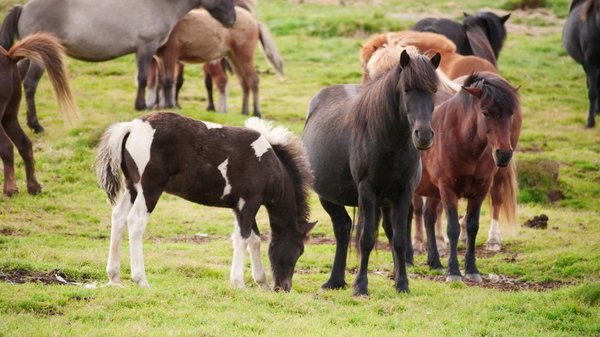
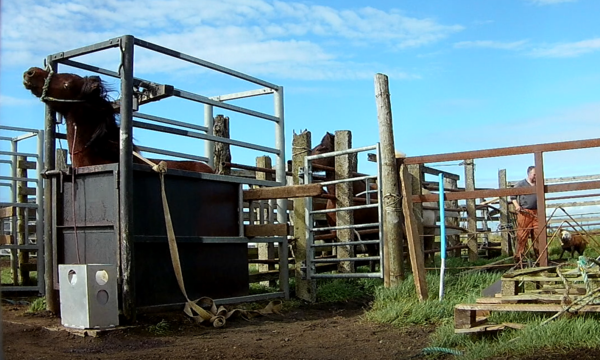
2. PMSG: One of the driving forces behind industrial farming
Pregnant mare serum gonadotropin (PMSG), also called equine chorionic gonadotropin (eCG), is a hormone found in the blood of mares during the first stage of pregnancy (from day 40 to 140). To obtain the hormone, the mares are subjected to repeated blood extractions over a period of approx. two months, depending on the hormone level in their blood.
The fertility hormone PMSG is predominantly used in industrial animal breeding to increase the reproductive performance of farmed animals - in particular sows, but also cattle, sheep, and goats - through synchronising cycles and increasing the number of offspring produced per year. The use of PMSG in intensive pig farming is very common all over the world. By using PMSG, the sows come in heat earlier after weaning the piglets than under natural conditions, and all at the same time. In the marketing brochure for the product Fertipig, the pharmaceutical company Ceva Santé Animale recommends treating all sows at the day of weaning in a preventive way. In 2019 there were 1.8 million breeding sows in Germany. Approx. 2.1 million doses of PMSG were administered in that year, thus it is clear that PMSG is not only used to treat individual animals in case of anoestrus but is rather used systematically in piglet production. Furthermore, PMSG is not only used for induction and synchronisation of oestrus, but also for superovulation (larger litters) and induction of puberty.
Ceva’s marketing brochure defines the goals of PMSG use as follows:
- increased economic efficiency
- higher insemination rate
- higher number of piglets
- less non-productive days
- better concentration of work
It is clear that the hormone serves to boost fertility and profits in industrial farming.
Negative impact on the welfare of farmed animals
The production of PMSG not only raises serious welfare concerns with regard to horses. Horses are exploited in order to exploit other species, mainly pigs. PMSG promotes unnatural rates of reproduction and gives the sows no time to recover in between pregnancies. PMSG also induces superovulation which results in larger litter sizes. The greater the number of piglets, the higher the risk of animals being born weak and malnourished. Surplus piglets often die or are killed when a sow does not have enough teats to feed them all. Increased litter size is evidently associated with increased piglet mortality. Furthermore, PMSG can be used for the induction of puberty in young sows, but early pregnancy shortens pubertal development and usually leads to early infertility and slaughter.
There is no medical indication for the frequent application of PMSG in farmed animals. The practice only serves economic interests by stimulating and accelerating physiological processes in animals. Furthermore, PMSG is used to treat fertility problems which are caused by the system, namely by poor husbandry conditions in intensive farming.
Alternatives to PMSG
According to veterinary experts, induction and synchronisation of oestrus is also possible with hormone-free methods, so-called zootechnical measures, which are successfully used not only on organic but also on conventional farms. They include rehousing, exercise, outdoor climate, optimal nutrition, contact with females in oestrus and male contact. Furthermore, there are numerous synthetic alternatives available to breeders for the induction and synchronisation of oestrus in farmed animals – 36 products in Germany alone – and their efficacy is very similar to PMSG according to different studies.
Professor Axel Wehrend, who carried out a study about PMSG alternatives on behalf of the German agriculture ministry from 2019 to 2021, concludes in his final report that “modern piglet production is possible without using PMSG/eCG”. He also states that by disusing PMSG, a significant improvement in animal welfare can be achieved for both the sows (avoidance of injections, improvement of body condition and husbandry conditions) and the pregnant mares (no repeated blood collections during pregnancy).
The German veterinary association BTK recommends that veterinarians avoid the use of PMSG in piglet production. Their official statement says that the use of PMSG is not essential, as alternative zoo- and/or biotechnological methods are available. In Switzerland, the farmers’ association representing almost 50,000 farmers has made the decision to prohibit the use of PMSGfor all animal species. This voluntary ban on the use of PMSG by the industry proves that animal breeding without PMSG is indeed possible.
3. Findings of our investigations
Isteka’s image film shows the blood extraction as a peaceful procedure taking place in a calm environment, with the people involved displaying competence and expertise. The everyday reality looks very different, as we documented during several investigations.
- 2019
During ten days of investigation, we find and document 40 blood farms in Iceland out of around 100 farms. In the north of the country, blood collection often takes place inside buildings due to harsh weather conditions. In the south, most blood collection facilities are in the open. We detect numerous risks of injury to the mares at these facilities. Most raceways and restraint boxes have dangerous gaps where the mares can injure their legs, and the boxes often have low bars where they can sustain head injuries.
The farms contracted by Isteka keep on average 30 to 70 mares, with some farms having considerably more. Isteka itself runs several blood farms and owns hundreds of mares. Most mares that are used for PMSG and meat production are semi-wild. Thus, blood extraction is a very stressful procedure. During a farm visit together with Isteka, we observe frightened mares struggling in the restraint box. Despite the audit situation, we observe some rough handling when the farmers believe they are not being watched.
At another blood farm, where we observe activities from a distance, people repeatedly hit mares with sticks, including on their heads. In addition, dogs are used to round up the horses, and one is observed attacking them. Furthermore, we find a seriously injured mare in a pasture next to a blood farm. The mare does not receive any appropriate care over four days, although we have informed the veterinary authority MAST.
- 2021
Video footage obtained on two blood farms in 2021 shows the everyday treatment of the mares outside the audit situation. The entire procedure, lasting two to three hours, is stressful for the semi-wild horses. Their handling is rough to brutal; their blood is taken by force.
The mares are packed tightly together in overcrowded holding pens, where they fight frequently and foals risk being injured. The mares are forced into the restraint boxes by being beaten with whips, rubber sticks, iron rods or wooden planks. None of the veterinarians present is observed intervening to stop the mistreatment. The mares are restrained inside the boxes with their heads tied up high, and a large-bore cannula is inserted into their jugular vein.
Panicked mares struggle to get free and pull at the rope. Some fall. Their entire weight is borne by their head and neck, putting them at risk of serious injuries. After the blood extraction, most of the traumatised mares run away as quickly as they can, while others walk away slowly, shaking their whole body or even staggering.
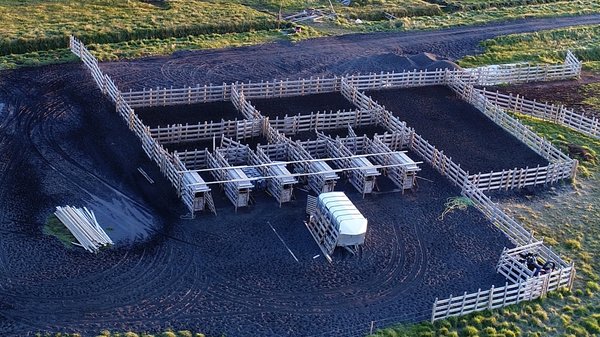
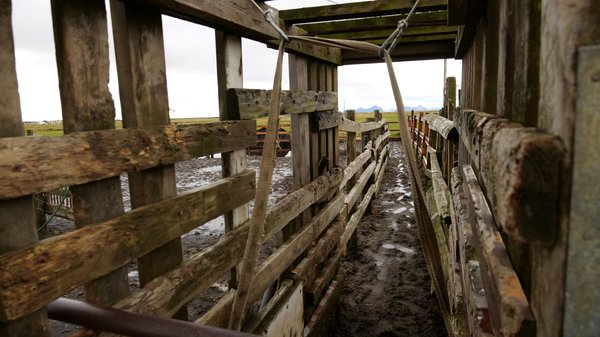
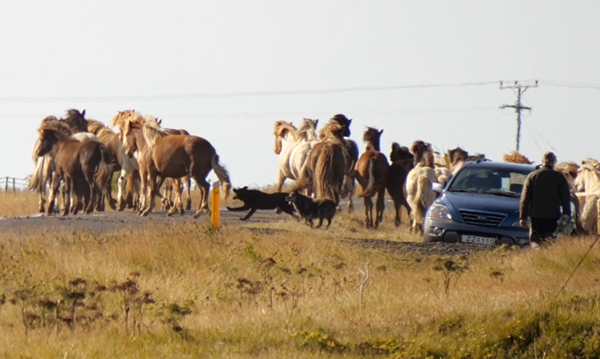
- 2022
During our investigation in August 2022 together with an ARD team, we document 18 blood farms. Once again, we detect numerous risks of injuries to mares and foals at the blood farm facilities. Most raceways and restraint boxes have dangerous gaps where the horses can injure their legs, and the boxes often have low beams where they can sustain head injuries.
We also notice some changes compared to our previous visits. Several blood farms are no longer in operation, including those shown in our documentary film from November 2021. One blood collection site has been moved away from the public road further into the field. Another farm has moved the restraint boxes from outside to inside a building. Blood farmers obviously try to better hide their business. During blood collection, farmers are observed obstructing the view from the public road with tractors and trailers.
We also speak with different stakeholders, including associations, experts and authorities. Disappointingly, the pharma company Isteka and the blood farmers refuse to talk to us.
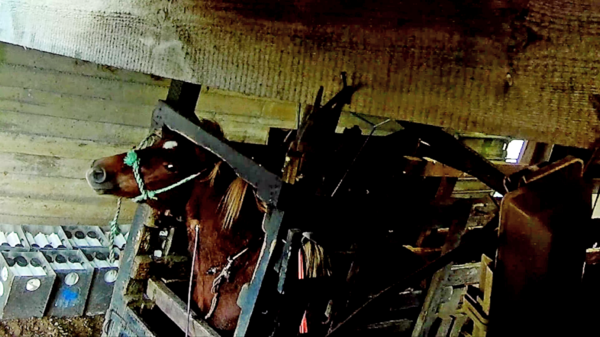
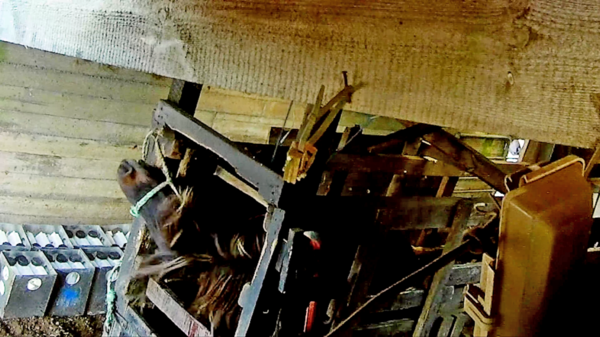
4. Legal situation of PMSG production in Iceland
- Breaches of the animal experiment regulation
In March 2022, we filed a complaint with the EFTA Surveillance Authority (ESA) regarding blood farms in Iceland, as they are in breach of rules applying in the European Economic Area (EEA). The complaint was supported by Eurogroup for Animals and 14 other animal protection organisations. We argued that Iceland did not properly apply its legislation on the protection of animals used for scientific purposes, Regulation no. 460/2017, which is derived from the EU Directive 2010/63. Both legal texts stipulate that procedures for the manufacture of drugs - such as blood collections - are classified as animal experiments. According to the principle of the 3 Rs (replacement, reduction, refinement), animal experiments must, whenever possible, be replaced by alternative methods not entailing the use of live animals. In the case of PMSG, such alternatives exist.
Following our complaint, the EFTA Surveillance Authority (ESA) sent a letter of formal notice to Iceland in May 2023, requesting the country to correctly apply EEA rules on the protection of animals used for scientific purposes. ESA also stated that by adopting a new national regulation in August 2022, Iceland had created further legal uncertainty concerning blood collection from pregnant mares and failed to ensure the effectiveness of the EU Directive 2010/63. A letter of formal notice is the first step in an infringement procedure against an EEA / EFTA State.
The Icelandic government replied to ESA on 15th September 2023. In its response, the Icelandic government acknowledged that the procedure of collecting blood from pregnant mares for the production of PMSG should fall under the EU Directive 2010/63 and the corresponding national legislation, Regulation no. 460/2017. Iceland also announced that the Regulation No. 900/2022 from August 2022 will be revoked by 1st November 2023 .
Therefore, on 1st November 2023 the legal basis for PMSG production in Iceland changed. From now on, Regulation no. 460/2017 on the protection of animals used for scientific purposes will apply. This new legal situation means that Isteka and the blood farmers will have to apply for an authorisation on the basis of Regulation no. 460/2017. The competent authority MAST will have to carry out a thorough project evaluation in line with this regulation before authorising the project. An assessment will have to be carried out of whether a scientifically satisfactory method, not involving the use of live animals, can be used instead, according to the principle of the 3 Rs. The project evaluation will also have to include a harm-benefit analysis of the project, to assess whether the harm to the animals in terms of suffering, pain and distress is justified by the expected outcome, taking into account ethical considerations, and may ultimately benefit human beings, animals or the environment.
It seems clear that such a project evaluation cannot have a positive outcome and that the authorisation must not be granted. PMSG is not indispensable since there are alternative methods available to breeders, including synthetic medicinal products that fulfil the same purpose as PMSG. However, it is important to note that many breeders do not use any hormones to synchronise reproduction cycles.
- Systematic breaches of Icelandic animal welfare legislation
The goal of the Animal Welfare Law no. 55/2013 is that animals are free from discomfort, fear, suffering, pain and injury, inter alia, in the light that animals are sentient beings. Ill-treatment of animals is prohibited. However, it is not possible to take blood from semi-wild horses without using force or causing stress and fear. This is a systematic problem and leads to repeated traumatisation of the mares, as stated by veterinary experts. Furthermore, the coercive restraint in the blood extraction boxes poses many risks of injuries.
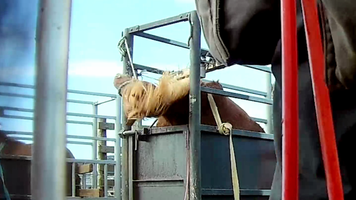
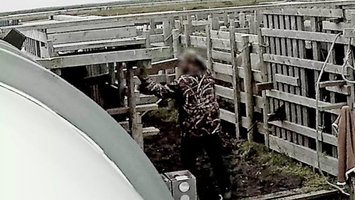
5. Non-compliance with existing recommendations on blood volumes
From late summer to autumn, 5 litres of blood are drawn from each mare once a week, up to 8 or even 10 times per season. This frequency exceeds any existing international recommendations for blood collection. Some guidelines recommend that no more than 10 % of a horse’s total blood volume should be extracted every 3 to 4 weeks. Others recommend a maximum of 15 % every 4 weeks. It is further not recommended to remove more than 15 % of the blood volume due to the risk of hypovolemic shock. Icelandic horses have a total blood volume of about 28.5 litres. Thus, according to various recommendations, no more than 4.275 litres (15 %) should be extracted once per month. In Iceland, between 15 and 20 % of the mares’ total blood volume is removed once a week. The implementation of the recommended standards would drastically reduce the production volume by approx. 75 %. Such a significant reduction would go against the interests of Isteka, especially since the company is planning to increase the production further in the coming years.
According to German guidelines for the collection of blood in the veterinary field, a maximum of 15 ml blood per kilogram body weight may be extracted every 30 days, which in the case of Icelandic horses would make 5.7 litres once per month. However, these guidelines additionally prohibit taking blood from pregnant or lactating mares. In Iceland, the mares are both pregnant and lactating, which must also be taken into account. According to Prof. Stephanie Krämer from the Justus Liebig University Giessen, the mares have to provide energy for the production of milk and also for the development of the foetus. In addition, they have to provide energy for the regeneration of lost blood components, which means a triple burden for the mares.
6. Conclusion
Our repeated investigations show that blood collection from pregnant mares in Iceland is a business that raises serious animal welfare concerns, including:
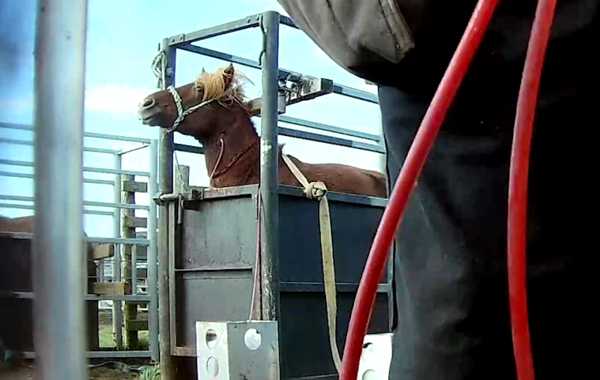
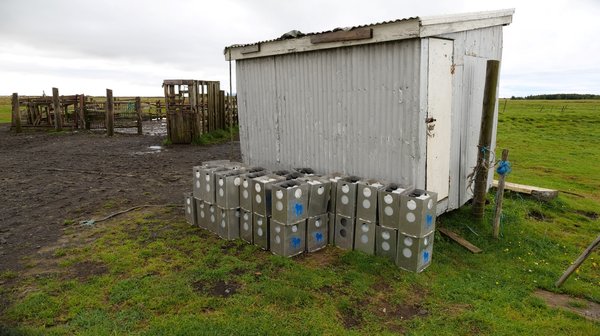
- High volume and frequency of blood extractions, raising both animal health and welfare concerns
- Rough or violent handling of mares during the blood extraction procedure
- Mares exhibiting severe signs of stress, fear or panic (repeated traumatisation)
- Installations and methods of restraint posing a high risk of injury to the mares
- Insufficient supervision by the veterinary authority MAST
- Untrained staff
PMSG is a cruelly produced hormone, and it is not indispensable since there are numerous alternative methods available to breeders. PMSG only serves to maximise profits of blood farmers, pharmaceutical companies and industrial animal breeders.
EU Parliament’s call for a ban on PMSG import and production
On 20th October 2021, the European Parliament adopted by a large majority a Resolution on a Farm to Fork Strategy for a fair, healthy and environmentally-friendly food system. In its paragraph 130, the European Parliament “recalls that structural animal experiments that are not indispensable should have no place in the food chain as Directive 2010/63/EU prescribes the replacement and reduction of the use of animals in procedures; calls on the Commission and Member States to stop the import and domestic production of Pregnant Mare Serum Gonadotropin (PMSG), which is extracted from the blood of pregnant horses that are systematically impregnated and exposed to blood collections, involving health and welfare issues”.
This call represents the official position of the European Parliament, even if it is not legally binding on the European Commission. It is high time for the European Commission to act and implement the Parliament’s request.
We urge the European Commission to follow the European Parliament’s call and to ban EU imports and production of PMSG
We also urge the Icelandic authorities to not authorise blood collection from pregnant mares under the legislation on the protection of animals used for scientific purposes.
7. Documentary films
Detailed reports on PMSG production in Iceland can be made available, on request, to competent authorities, politicians and media representatives.
